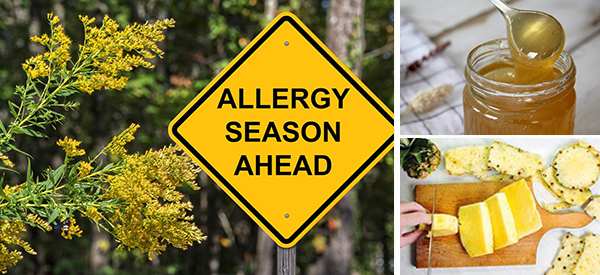
Avoid Spring Allergies With These 7 Natural Remedies
With the fresh feeling of spring comes pollen and allergies. If you suffer from seasonal allergies, you probably dread this season . . . but there are natural remedies to help you combat that stuffy nose, itchy eyes, and headache. For those of you who prefer to avoid over-the-counter medications for your allergies, there’s a better way.
Allergies are essentially caused by the body’s immune system kicking into overdrive when confronted with an allergen. The immune system leaps to attack the invader, producing excessive amounts of histamine, which results in a stuffy nose, sneezing, excess mucus, and itchy eyes. While the body is designed to act this way to get rid of potentially dangerous threats, it doesn’t help much when it comes to allergies, so you’ll probably want to treat the symptoms, at least.
Apple Cider Vinegar
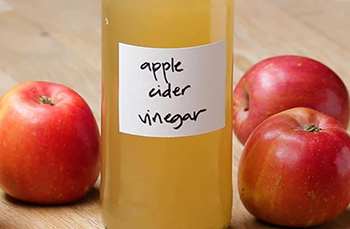 You should be considering ACV in your regular diet, not just because it’s great for helping with your immune system and digestion, but it’s also great for allergies. If you have an overabundance of mucus building up during the spring, apple cider vinegar is the perfect remedy.
You should be considering ACV in your regular diet, not just because it’s great for helping with your immune system and digestion, but it’s also great for allergies. If you have an overabundance of mucus building up during the spring, apple cider vinegar is the perfect remedy.
ACV reduces how much mucus your body produces. Mucus contains histamine when allergens cause the mucus membranes to go into overdrive and that means you end up with sneezing and itchiness. Preventing the overproduction of mucus can be helpful in reducing symptoms.
To use: Mix a tablespoon of apple cider vinegar into a cup of hot water and add honey to taste. Stir until dissolved and drink each morning.
If needed, you can take it up to three times a day.
Stinging Nettles
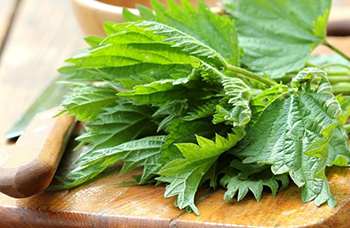 You probably know that some people eat nettles and you may do so yourself. However, it’s the tea that is particularly useful in preventing allergies from taking over your life. The stinging nettle helps reduce inflammation and also prevents histamine from being produced excessively in the body.
You probably know that some people eat nettles and you may do so yourself. However, it’s the tea that is particularly useful in preventing allergies from taking over your life. The stinging nettle helps reduce inflammation and also prevents histamine from being produced excessively in the body.
If you dislike the tea, you can also get capsules with the extract, but these are more processed.
To use: Add a handful of dried or fresh leaves to a cup of boiling water and simmer for 3 minutes. Cool and steep for 5 minutes, then strain and drink. You may add some honey if you like.
Local Honey
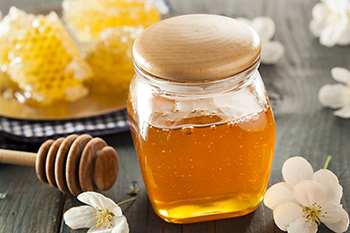 Many people swear by using local honey to reduce allergies. It’s best used in conjunction with some of the other remedies given here since it takes longer to work. You need honey that is produced within your immediate area and preferably raw. The idea is that this helps the body adjust to the allergens that are around you, without causing so many symptoms.
Many people swear by using local honey to reduce allergies. It’s best used in conjunction with some of the other remedies given here since it takes longer to work. You need honey that is produced within your immediate area and preferably raw. The idea is that this helps the body adjust to the allergens that are around you, without causing so many symptoms.
To use: Simply add a tablespoon of honey to your morning tea or cereal. If preferred, you can just take the spoonful of honey as desired.
Related: 50 Amazing Uses For Honey You Didn’t Know About
Bromelain
 Dealing with difficulty breathing from all that pollen in the air? Try eating something that contains bromelain. This enzyme reduces swelling and is a natural anti-inflammatory. It will help you breathe much better fairly quickly.
Dealing with difficulty breathing from all that pollen in the air? Try eating something that contains bromelain. This enzyme reduces swelling and is a natural anti-inflammatory. It will help you breathe much better fairly quickly.
You can find bromelain in papaya, pineapple, kiwi, asparagus, and ginger. It’s also found in fermented or probiotic foods like kefir, yogurt, sauerkraut, and kimchi, all of which have the added bonus of being packed with probiotics.
To use: Make pineapple or papaya with yogurt a daily part of your breakfast.
Related: How To Make Your Own Probiotics
Vitamin C
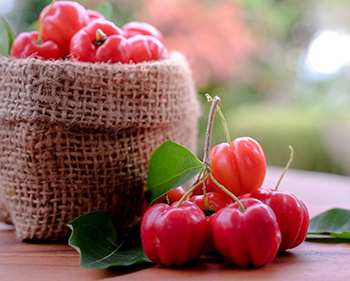 You know that Vitamin C is essential in keeping your immune system in great working order, but did you know that it is also an anti-histamine?
You know that Vitamin C is essential in keeping your immune system in great working order, but did you know that it is also an anti-histamine?
The vitamin naturally reduces the levels of histamines in your body and helps get rid of the nasty symptoms.
You’ll find Vitamin C easy to add to your daily diet. Try eating Kakadu plums (481 mg/plum), Acerola cherries (822 mg/half cup), rose hips (119 mg/six hips), black currants (100 mg/half cup), or citrus fruits (70mg/orange).
To use: You can either eat plenty of foods high in this vitamin or take 2,000 mg of Vitamin C each day.
Quercetin
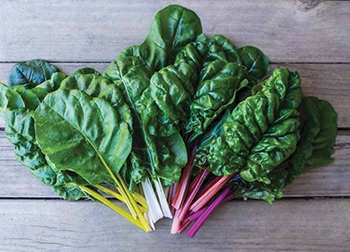 As bizarre as this flavonoid sounds, it’s all-natural and an excellent anti-histamine that will help with your allergies. It also reduces inflammation, making it simpler to breathe.
As bizarre as this flavonoid sounds, it’s all-natural and an excellent anti-histamine that will help with your allergies. It also reduces inflammation, making it simpler to breathe.
Quercetin is available in supplements, but you’ll want to get most of it from your daily diet. Leafy greens tend to have plenty of it, so load up on spinach and kale. Onions are actually one of the top sources for this pigment, but red or yellow onions will have the most. You can also find it in tomatoes, broccoli, blueberries, and apples. Keep in mind that the value is in the skin, so don’t peel your food.
To use: Simply add more of the above fruits and vegetables into your diet on a daily basis.
Related: What Is Quercetin? Benefits, Dosage, and Side Effects
Perilla
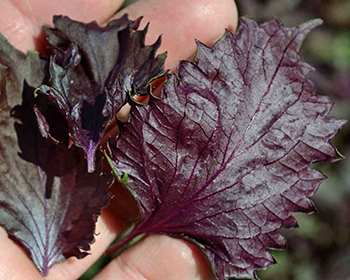 You may know this unique herb from the mint family for its use in sushi. It’s also handy if you deal with allergy symptoms, though. The herb works as an anti-inflammatory, antioxidant, and anti-allergenic, reducing inflammation, itchiness, and irritation.
You may know this unique herb from the mint family for its use in sushi. It’s also handy if you deal with allergy symptoms, though. The herb works as an anti-inflammatory, antioxidant, and anti-allergenic, reducing inflammation, itchiness, and irritation.
Perilla is traditionally used in Chinese medicine and cooking, but you can make tea from it or simply use it in your food. It works well in soups and as a wrap for fish or meat. As a side bonus, perilla is also a natural mood enhancer, so you’ll likely feel pretty upbeat if you’re taking it regularly.
To use: Add a handful of leaves to a cup of boiling water and steep for 10 minutes. Drink this every morning and evening. Alternatively, add half a cup of shredded leaves to your morning meal.
In addition to these natural remedies, you may also want to try using a neti pot or another method of rinsing out your nasal passages and sinuses. Use a saline solution to flush the mucus out of your nose and it can also help reduce the inflammation there, as well as remove irritants that may be making things worse.
Allergies are definitely no fun, but if you have the right ingredients on hand, you can keep the symptoms to a minimum. Keep an eye out for natural anti-inflammatories like ginger and lavender if you can’t get your hands on the above ingredients. Often, reducing the inflammation will help your body fight off the symptoms of allergies.
You may also like:
 How to Make an Herbal Steam for Congestion and Allergies
How to Make an Herbal Steam for Congestion and Allergies
Do This To Relieve Tinnitus & Fight Ringing Ears (Video)
How to Treat an Asthma Attack Naturally When You Don’t Have an Inhaler

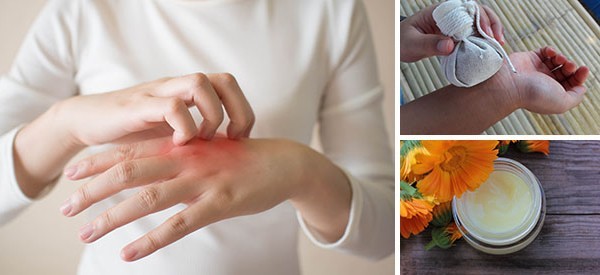
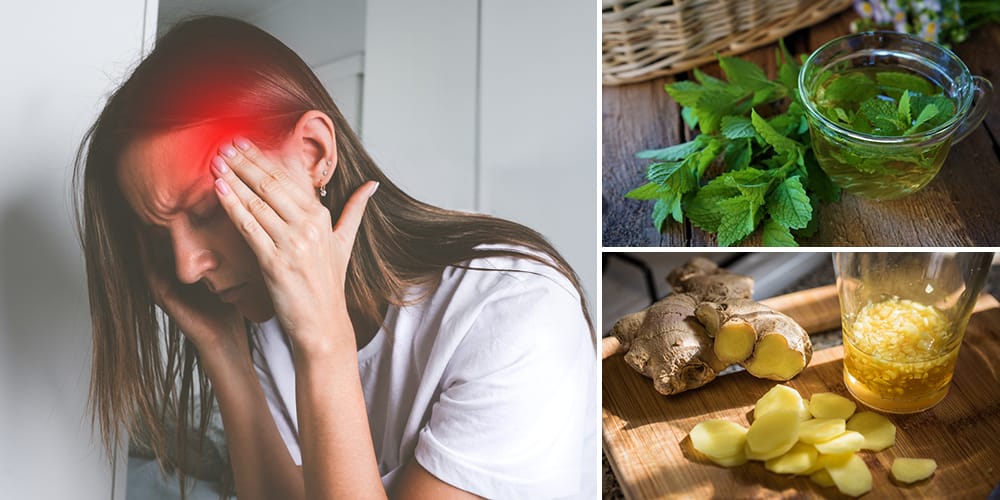

Most of us with Seasonal Allergy’s know, most OTC allergy stuff, just doesn’t work. Join me going back to Nature and what our Ancestor’s knew & used.
Methyl Sulfonyl Methane (MSM) – never confound it with MMS!- is a naturally occuring sulphur compound. One spoon in water or juice helps with many allergic problems. It is a detoxifying compound, so daily use over a period of some weeks helps best.
I appreciate this article. My adult daughter suffers from allergies and occasional respiratory issues that her physician only prescribe inhalers for with no explanation on why she is going through this. I am going to introduce her to these remedies to see if they can help her.
I would love to hear how or if it works please.with the world heading the way it is I am very interested in making my own remedies.i have ra and need to find a better pain reliever source. Thanks
I tried to look at Do This To Relieve Tinnitus & Fight Ringing Ears (Video) https://synapsext.com/pr. But my security firewall says it is not available and shows it as a scam.